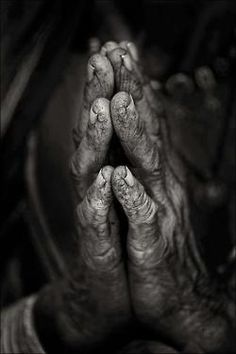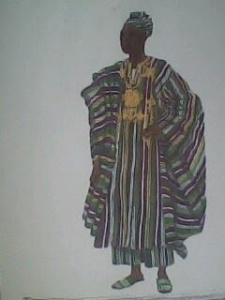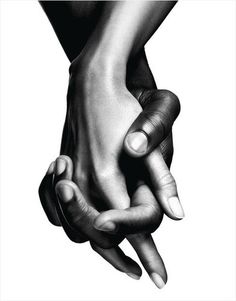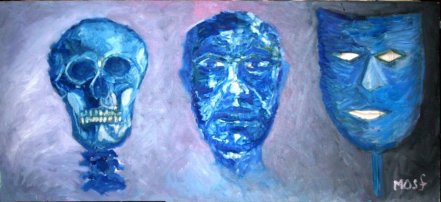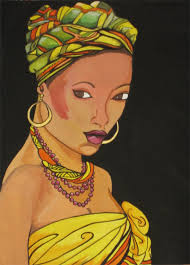When I think about 2015, I think about how terrible I felt half the time. Ill, exhausted, empty. Going through all of these was not pretty. I remember sitting curled in a ball in my apartment, eyes closed, thinking nothing, feeling empty. Often I took long walks to clear my head. Often I went out to be among people, noticing their smiles and soft laughter like a baby’s bottom.
Despite all of these I remember how I smiled, my closed my smile that reached my eyes so that they squinted and looked like a pair of Chinese eyes so you could barely see the glistening black balls.
This year was me doing things I really wanted or needed to do without letting the way I felt at the moment hold me back.
I do not know how to describe my year succinctly. How I failed Nigeria or how I lost a friend. I cannot describe how I tremble when I think of four hundred level land law and law of trusts or Equity and how God saw me through it all. It might seem easy, painting it delicately, the way the sun smothered my skin on the sunny days or the way my skin whitened and lips broke and bled during the harmattan, but I could never do it well. I could never describe what a friend I found in Assumpta or Dunni or Ife, or how great my Arts and Africa family has been to me.
2015 was good to me in so many ways. I had so many opportunities I never expected. How to thank the people that made it all happen, I do not know. All those free stage play tickets I got and free books made my year surreal.
Seeing as I captured a lot of 2015 moments, I’ll describe my year with pictures

Amazing day listening to Toni Kan and Victor Ehikhamenor.
I was a volunteer at Ake festival 2015. It was a lot of work. But it was fun.
Artsandafrica.com kicked off this year. It is incredible being part of this family. I’ve learned so much and met amazing writers from all over the continent.
Somtimes, Tosin, Assumpta, Dunni and I would go to creamium and spend the little we had on ice cream. #2015rituals
I met Binjo this year. He is an amazing friend and takes all my crap bullshit and gets all my jokes. haha. And Denike too. Awesome friend. Unfortunately, can’t find any picture with her.

I saw a lot of stage plays this year man. Made several trips to Terra Kulture and Muson center. I think I’m still in debt.😂

I remember this day. We got to the venue of Saraba’s talk very late because of the issue of wrong address. The Saraba talk was hosted by Dami Ajayi who is one of the coolest people you can ever meet. I’m not even joking. From talking to him and reading his work, I learned a lot this year.
Middle picture. Funny day. Before we got to freedom park for the Poetry festival, I called Tosin creative poverty. I said it so naturally, I thought it was funny that he was reacting a certain way. Lol. We had an awesome time here. I left early, but later that night, my cousin drove me back to freedom park for the borderless concert against my wishes. When we got bored, we drove around Lagos. Awesome day. And night.
Last Picture. Also a night thing. Wura and I had so much fun. We got home real late. Have I mentioned Wura is absolutely amazing? Totally lovable.
Wedding, parties and other stuff with my lovers.
We were slaying anyhow. Amazing night. Fope, Ona and I had our short stories featured in the book published to raise money for autistic kids. Amazing writers Ona and Fope. It has been a good year with Fope. She is so much of an amazing Partner. even with the ups and downs.




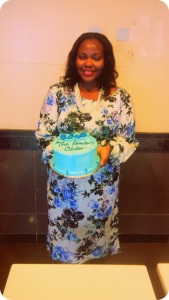
Class selfies and other selfies.

This was an amazing three day workshop at British Council. Learned so much.



These are but a few pictures from 2015. And these are just some of the people that made my year. They’re a lot. If I were to talk about Efe Paul whose poetry I so love or Lola Shoneyin who made Ake festival happen, I’d be writing a new blogpost.
Plus there’s Damola Olofinlua through whom I could attend the Etisalat prize for literature award ceremony. An exclusive beautiful event. I was very close to Wole Soyinka. So close, I could have run my fingers through his hair. Jokes. I would forever be grateful. Then there is Adebola Rayo (Artyliving) who made my Easter with two tickets to see Saro Musical. There are so many other people. You, as you read, you’re making my 2015. Thank you.
There are so many people I have to thank. So many things I have to say. But I’ve been unable to arrange my thoughts. Perhaps before the year runs out, I’ll dish out my vote of thanks like I’m at an awards ceremony.
Ake festival was a huge highlight for me this year. I got so many free books, my book shelf is spilling. I met a lot of people and mostly, I got to be a part of something huge. (P.s I am Maxim Uzoatu’s personal person)

Maybe I was not all that happy this year. And often I ask myself, what am I going to do about that? It is not like life is not going well. My grades are excellent, I’m in almost good health, and so I often say, Ope, you have ever reason to be happy. But no. There’s something else. It’s like getting up to pick something somewhere but getting there and forgetting what you went there to pick in the first place. It is small. Often unbearable. Sometimes you stare into space and start crying, conjuring unrelated things that should be long forgotten.
If you know, you know.
I’ve found my solace in so many things. Novels. Mariam. Friends. God.
These keep me sane.
Whatever it is, all I know is I’m getting closer to being who I want to be, even though I’m not sure what exactly or who exactly that is. Baby steps Ope. Closer. And closer.
My writing also grew and grew this year, even though I did not write as much as I wanted to, I read a lot. A lot of big things happening next year, that I am sure of.
It’s been an amazing year and some. Thankful.
(P.s; thanks to Isma’il for some of this amazing pictures)











































